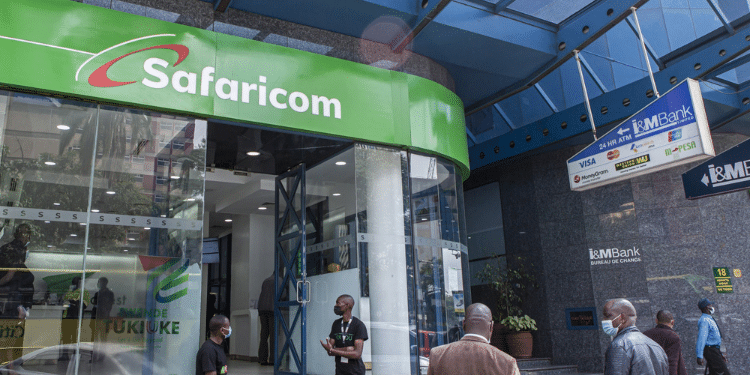The financial landscape in Kenya is evolving at an unprecedented pace, driven by the rise of fintech innovations that are reshaping how savings and credit cooperative societies (SACCOs) operate.
With over 15 million members and assets worth billions, SACCOs have long been a cornerstone of financial inclusion in Kenya, particularly in rural areas where traditional banking services are scarce.
However, as the country embraces digital transformation in cooperative finance, a critical question emerges: Are Kenyan SACCOs truly prepared to leverage fintech solutions to stay competitive and meet the growing expectations of their members?
The Rise of Digital Transformation in Kenyan SACCOs
Kenya’s financial sector has set a global benchmark with successes like M-Pesa, where over 38 million people now manage their finances via mobile platforms.
Major banks such as Equity Bank and KCB report that over 90% of their transactions are digital, signalling a shift toward convenience and efficiency.
SACCOs, traditionally reliant on manual processes and physical branch visits, are now under pressure to follow suit. The promise of digital transformation, lower operational costs, faster services, and enhanced decision-making offers SACCOs a chance to modernise and expand their reach. Yet, this transition is not without hurdles.
Top-tier SACCOs like Police SACCO, Stima SACCO, and Harambee have already taken bold steps, investing in mobile apps and partnerships with mobile money providers.
These efforts allow members to check balances, apply for loans, and make repayments without leaving their homes. Smaller SACCOs, however, often lag behind, struggling with outdated systems and limited resources.
This disparity raises the question of whether the entire SACCO sector can keep pace with the fintech revolution.
Fintech Innovations: A Game-Changer for SACCOs
Fintech is unlocking new possibilities for SACCOs, particularly through integrations with mobile apps, USSD codes, mobile lending platforms, and APIs. These tools are streamlining operations and bringing financial services to members’ fingertips, even in remote areas.
- Mobile Apps: Platforms like Kwara and Mombo SACCO’s app offer user-friendly interfaces where members can manage savings, apply for loans, and track transactions. These apps are becoming a lifeline, especially for urban and tech-savvy members who value 24/7 access.
- USSD Services: With codes like 341# (Kwara) and 841# (Zenka), SACCOs are reaching members without smartphones. This low-tech, high-impact solution leverages Kenya’s widespread mobile money adoption, making banking accessible to all.
- Mobile Lending: Digital loan disbursement and repayment systems are transforming how SACCOs provide credit. Members can now receive instant loans to their mobile wallets, a shift that enhances transparency and reduces cash-handling risks.
- API Integrations: Partnerships with fintech giants like Finserve and Craft Silicon enable SACCOs to integrate core banking systems with payment gateways and analytics tools. For instance, Craft Silicon’s solutions have automated reconciliations and bill payments for SACCOs like Qona, enhancing their efficiency.
These innovations are not just trends; they’re reshaping the SACCO experience, offering speed, security, and scalability. Yet, their success depends on SACCOs’ ability to adapt and invest.
READ ALSO:
SACCOs vs Money Market Funds in Kenya: Where Should You Invest in 2025?
Challenges Holding Back SACCO Digital Transformation
Despite the potential, many Kenyan SACCOs face significant barriers to fintech adoption. Financial constraints top the list, as upgrading to modern banking platforms or integrating new apps requires substantial investment.
Smaller SACCOs often rely on affordable ERP systems like Microsoft Dynamics, which need frequent updates, adding to the cost. In contrast, premium solutions like Banker’s Realm, while more robust, are out of reach for many.
Technical expertise is another limitation. Hiring and retaining skilled IT staff is a challenge, especially outside Nairobi, where talent is scarce and competition from banks and tech firms is fierce.
Legacy systems further complicate matters, as integrating new fintech tools with old infrastructure can be a costly and time-consuming process.
Compliance adds another layer of complexity. The SACCO Societies Regulatory Authority (SASRA) has introduced guidelines on management information systems (2015) and cybersecurity (2018), with updates driven by the rapid evolution of digital finance.
Non-compliance risks hefty penalties or fraud losses, as seen in cases where SACCOs have lost billions to cyberattacks. The Data Protection Act of 2019 further demands robust data security, a standard many SACCOs struggle to meet.
Are Kenyan SACCOs Ready?
The readiness of Kenyan SACCOs for fintech varies widely. Leading SACCOs like Kenya Police SACCO, with an asset base of $390 million and over 67,000 members, have embraced digital platforms like M-Tawi, showcasing impressive growth with 100 new members weekly.
Border SACCO in Busia County echoes this success, reporting faster loan disbursements and higher member satisfaction since digitising six years ago.
These examples suggest that with the right tools and commitment, SACCOs can thrive in a digital world.
However, the picture is less rosy for smaller SACCOs. Ranen Sugarcane Growers SACCO in Migori, with only two staff and manual operations, exemplifies the struggle.
Chairman Victor Hera notes the challenges of inefficiency and limited reach, highlighting a gap that fintech could bridge if resources were available.
With over 20,000 registered SACCOs serving diverse communities, this readiness gap could widen unless targeted support is provided.
The Role of Fintech Partners
Fintech companies are stepping up as vital allies. Kwara, a Kenyan-developed platform, powers over 230 SACCOs with cloud-based solutions hosted on AWS, offering fixed subscription fees and features like USSD and mobile apps.
Its acquisition of IRNET from KUSCCO in 2023 further strengthens its market presence, combining deep industry knowledge with cutting-edge technology.
Craft Silicon’s SACCO360 has similarly transformed operations for SACCOs like Qona, enabling 24/7 banking and automated processes. Finserve’s APIs facilitate seamless integrations, while Redian Software’s custom mobile banking apps cater to SACCOs of all sizes.
These partnerships are crucial, but SACCOs must actively engage with them. Training staff, securing funding, and aligning with regulatory requirements are steps that require leadership and vision. Without this, the benefits of fintech risk remaining out of reach for many.
READ ALSO:
What Is a SACCO and How Does It Work in Kenya?
The Future of SACCOs in a Fintech-Driven World
Are Kenyan SACCOs ready for fintech? The answer is a cautious yes, with significant limitations. While top-tier SACCOs are leading the charge, smaller cooperatives face steep challenges in finance, skills, and compliance.
The integration of mobile apps, USSD, mobile lending, and APIs from partners like Finserve and Craft Silicon offers a roadmap to success, but readiness requires investment and strategic planning.
As Kenya’s financial ecosystem evolves, SACCOs that embrace digital transformation will not only survive but thrive, ensuring financial empowerment for millions. The time to act is now,will your SACCO be part of this movement?
Ronnie Paul is a seasoned writer and analyst with a prolific portfolio of over 1,000 published articles, specialising in fintech, cryptocurrency, and digital finance at Africa Digest News.







Leave a Reply